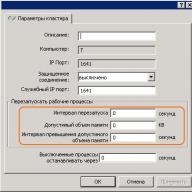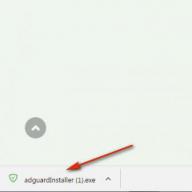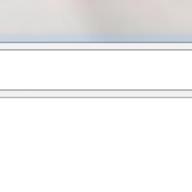Are you sure you are communicating with the “you” technique? If you have not heard of at least one of the following items, it means that you have not yet matured to the “specialist”.
1. No need to double-click everywhere
By double-clicking you open the necessary things in the "Windows". However, in the browser, for example, double-clicking will already be brute force: you can accidentally archive something or add twice. If this is not about you, then definitely about one of your friends.
2. Put “slashes” or “backslashes” in necessary situations
Let's say directly: “/” is a slash, and “\\” is backslash. The latter are often used to indicate addresses. windows files (C: \\ Program Files \\ Something), and slashes appear in Internet addresses (http: // www. Whatever.com/nonsense.html).
3. Record the exact error message
When your PC flies, he often tries to tell you why this happened. In general, you will see a message with a regular, though not always clear, set of letters and numbers. Write everything down carefully (you can take a screenshot) so that later you can "punch" this error on Google or send it to your support team. If you nevertheless “missed”, go to the Control Panel and check the archived messages or error reports.
4. Return previously deleted files to "life"
When deleting files from a computer or memory card, they generally are not completely deleted from hard drive. You simply erase the index information that tells the PC where the file is located. After such an “erasure”, the computer, of course, considers the vacated space as a new field for activity. If you erased something unwanted, utilities like Recuva will help you find these files again, provided that you did not erase that file with something new. Never leave your personal data on the hard drive of your old PC!
5. Clean the hard drive before disposing of it.
Since your computer does not immediately get rid of the files you delete, simply format hDD before selling or replacing a computer will not be enough. Why? Yes, because someone can use the application to restore deleted files and restore your "secret" data. There are enough options for the final “erase”, but we will advise you to try the CCleaner application. A simple interface and clear functionality will help you get comfortable at a time.
6. Do not rush to “tick” during installation
Many useful applications offer us to install additional toolbars and other "bonuses". It happens that some of them “insist” on their usefulness (they automatically want to install themselves), so you need to manually remove the “tick” already set by someone. In such cases, it is better to think twice. Especially if you have no idea what information the “add-on” offered to you is transmitting or receiving at all. Very often, such add-ons are bundled with the "main" program only because they bring additional money to the developers, and not because they are super-useful. In general, see what “subscribe” to during installation.
7. Beware of viruses living in Office documents
More experienced users Microsoft Office It may be useful to use the built-in Visual Basic to support applications to automatically solve all complex macro issues. However, malware developers may well use the same tricks to create viruses that prevent you or your colleagues from working quietly. By default, Office disables all macros and warns when the document you are reading contains them (to activate this setting, select in Word -\u003e Word Options -\u003e Trust Center -\u003e Trust Center Settings -\u003e Macro Settings), so in this regard you still protected.
8. Do not forget about the security of your PC!
Any beginner in working with a computer needs to immediately learn one simple rule: any computer that has any connection with the "outside" world is at risk of infection. Even an ordinary flash drive (when in contact with other computers) can conceal unpleasant surprises in the form of viruses and trojans. What can we say about the "how many wonderful discoveries we have" preparing the Internet. Especially the World Wide Web is insidious towards inexperienced users who naively trust vibrant draft ads and sites of dubious content.
Our advice - do not check the fate of strength and one solution to get rid of many potential problems at once. Just install the antivirus. Fortunately, in the market today there are enough high-quality developments that have the status of free software. And this means that you won’t have to pay for its use. We recommend downloading Avast antivirus for free! - one of the best of its kind.
9. Delete programs that have become obsolete
If you constantly download and install new programs, you should not engage in unnecessary collecting - clean up useless or old programs. To do this, go to the Control Panel and Programs, go through the huge list and uninstall applications that you do not need. You may have to look at C: / Program Files / to track down a couple more unused applications. The less junk you have on your PC, the more reliable it will work.
10. Protect your PC or laptop from spilled drinks
If it’s too late and it happened, do not panic! You can still save data from the “caput”, and your motherboard from combustion. Quickly and confidently pull out the power cable and remove the battery. Do not wait for Windows to shut itself down. Then disconnect everything that is connected to the PC (network cables, USB devices) and remove any “removable” components, such as an optical disk. Tilt your PC so that the fluid flows back to where it came from. But be careful: you don’t want to “drive” it even deeper. If moisture is on the surface of the computer, wipe it off with a towel. At this stage, you have two options: 1) disassemble the PC yourself and wipe the electronics, or 2) give it to the “specialists” for inspection. The choice is yours.
11. Turn off user account control
Both Vista and Windows 7 provide this function: they darken the screen and “throw out” the window when installing applications or changing system settings. Although this function can be useful, not allowing any unintelligible applications to be installed spontaneously, it can be annoying. In any case, you can adjust the function settings in the User Accounts control panel. Click Accounts Users -\u003e Change the control settings and you can make it warned, but not darken the screen.
12. Do not work in the admin account
Many of us are used to doing our business on the PC as an administrator. Of course, this is much more convenient when installing new programs - you do not need to log in and log in while working under a regular account. However, working in the admin panel also makes the system more malleable to viruses and malware. So avoid this practice.
It’s convenient to add the user to the “experienced users” group and use it for normal hanging out on the network, switching to the administrator for serious system settings.
13. Hold the Control Panel as “icons”
Categories and sections of the Control Panel can be very useful at any time. Select Classic View (in Vista) or large icons in the View menu (in Windows 7), and get fast access to all the features of the panel.
Arrange the chaos of your system line by putting all the icons in pairs.
14. Clean the notification area
Very often, applications are placed in the notification area (a series of icons in the lower right part of the taskbar) and remain there without your knowledge. Pay attention to them. Open the Control Panel -\u003e All Elements -\u003e Notification Area Icons and decide which of the icons you need to contemplate while working, and which are better off. In the latter case, the memory of your PC may even say “Thank you”.
15. Adjust power settings
Those who use a laptop will always find useful information on the battery level. Open the Power Options in the Control Panel and select the settings that suit you. There you can choose your own power plan that will most satisfy your “computer needs”.
You can configure the laptop for maximum performance with an available connection to the mains and make it automatically switch to energy saving mode when reading a book on a sofa or in a cafe.
Now we will consider what skills a confident PC user should master. Once the basic skills are acquired, you can easily cope with more complex tasks.
Confident PC user: what are the requirements for it?
First of all, you need to be able to work with your operating system. This item should include the support of the system in a stable working condition, setting the parameters of the “desktop”, proper installation and the organization of the file structure (in which you can easily find any document, folder or unzip files in order to bring the data to the optimal size. These are the basic knowledge that any confident PC user should get.
This is not about whim or fashion, such skills are really important, because if, for example, you do not correctly remove programs, there is a chance that after a few months the computer will completely refuse to work.
Confident PC user cares about security
You need to be completely confident in the security of the computer, as well as all the data that is stored on it. To this end, you will have to master perfectly anti-virus programs from various manufacturers.
This skill cannot be called an exception, since it applies to absolutely all people who want to master a personal computer. It should be noted that if the Internet is a field of your professional activity (you, for example, create various copyright materials), in this case, the loss of all personal data is very often comparable in losses to bankruptcy!
Work in the "office" right at home

If we talk about who such a confident PC user is, of course, this is a person who knows how to use basic office programs, such as Excel and Word. It is not only about typing, but also about the full use of these tools in order to create fully formatted tables and documents.
To conduct business correspondence, create documents and databases, and also analyze statistics, you need Excel and Word programs. Skillful use of these tools will allow you to automatically sort data in tables, count the number of words and characters in the created document, write letters, significantly reducing the likelihood of accidental errors.
What is the Internet?
One of the main skills of any computer user is skillful work on the Internet. It is necessary to learn how to search for information on the World Wide Web without hours of unsuccessful wanderings on sites with a dubious reputation. You should be able to manage bookmarks to your favorite sites, as well as save all the important information that you find on your computer.
The skill to use various modern browsers will come in handy, which include many add-ons designed to make browsing the web fun and comfortable for humans. Confident PC user can use special software to work with the entire flow of incoming email, which allows you to save incoming letters on personal computer, and also process the received data several times faster.

Often, you will need to use programs to download files, taking into account the possible work on a given schedule, temporarily stopping it, then downloading data, disconnecting the Internet when the process of downloading materials is completed. In addition to the above skills, the basic need to include the ability to write data to CD- and DVD-disks, as well as other storage media.
In the resumes of candidates not for IT specialties, such a stamp is often found: " experienced PC user" or " advanced PC user".
Without claiming to be the ultimate truth, I propose a small testof my own making are you an experienced PC user.
Answer 10 questions without fulfilling the commands suggested in the questions, without launching the indicated programs and without using the help of other people. That is, everything is exclusively from memory. Throughout the questions it is assumed that you are using the operating room windows system, for example, Windows XP. Answers are given immediately after each question.
Question number 1.You clicked on the name of a file in Windows Explorer, and then pressed F2 on the keyboard. What can you do with the file now?
Answer:Change file name.
Question number 2.You typed Win + R on the keyboard, and then in the dialog that appeared, typed calc and pressed Enter on the keyboard. What will happen?
Answer:The Calculator program starts.
Question number 3.You double-clicked on the title bar of a window in Windows. What will happen?
Answer:If the window has been expanded to full screen, then it will be restored to normal sizes. Otherwise, it will be expanded to full screen.
Question number 4.You are editing text in MS Word. You selected a word with the mouse and pressed the key combination Ctrl + B. What will happen?
Answer:The word will be printed in bold. If it has already been printed in bold, the font will become normal.
Question number 5.Compare the following file formats to their "native" programs: docx, rtf, txt, doc. Programs: MS Word 2003, Notepad, MS Word 2007, WordPad.
Answer:
txt - Notepad
rtf - WordPad
doc - MS Word 2003
docx - MS Word 2007
Question number 6.From the listed formats, select the graphic formats: docx, tiff, bmp, ppt, rtf, txt, jpg, doc, gif, xls, png.
Answer:tiff, bmp, jpg, gif, png.
Question number 7.You are working with an MS Excel spreadsheet. You need to sum the values \u200b\u200bfrom the first to the tenth cell in the second column and put this value in some cell. What should be written in this cell?
Answer:\u003d SUM (B1: B10). Note: other correct answer options are possible, check for yourself in MS Excel.
Question number 8.Which mode turns this button on and off in MS Word:
Answer:Displays non-printable characters.
Question number 9.What does the command Ctrl + A usually mean?
Answer:Select all.
Question number 10.What is the format of the files that Adobe Reader is for viewing?
Answer:pdf.
If you were able to answer correctly 8 or more questions, then you really know how to work effectively in Windows with standard programs. If you have less than 8 correct answers, then you should tighten your knowledge and practice more.




